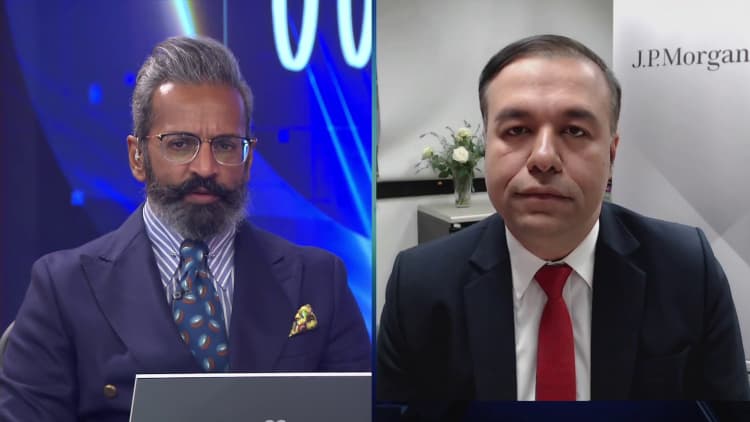[ad_1]
Female travelers view travel information via mobile application during their visit to Wat Pho, Bangkok, Thailand.
NETAT TERME | moment | Getty Images
The majority of Southeast Asian countries would side with China rather than the United States if forced to take sides, although some countries that feel threatened by Beijing's claims in the South China Sea still favor Washington. According to a regional poll.
This is the first time Beijing has outperformed Washington since 2020 when the annual survey first asked the question. The percentage of the United States as a preferred choice fell to 49.5% from 61.1% last year.
The survey was conducted by the Singapore-based Center for ASEAN Studies at ISEAS – Yusuf Ishak Institute from January 3 to February 23 with 1,994 respondents from academia, business, government, civil society and the media.
Participants were from the Association of Southeast Asian Nations, with the largest number of participants from Singapore and Indonesia.
The survey revealed that China emerged by more than 50% as ASEAN's most strategically important partner, ahead of the United States, while Japan remains the most trusted major power in the region.
China and ASEAN have remained their mutual largest trading partners for four consecutive years, with trade volume reaching $911.7 billion in 2023.
However, half of respondents also expressed mistrust towards China, with 45.5% saying they feared Beijing would use its economic and military power to threaten their country's interests and sovereignty, the report said.
China's aggressive behavior in the South China Sea is of greatest concern to the Philippines (90.2%) and Vietnam (72.5%), the two countries claiming the frontline in the South China Sea.
Philippine President Ferdinand Marcos Jr. He told Bloomberg Last month, he said his government's claims over certain parts of the South China Sea should not be seen as a provocation against China.
He said, “This does not represent a provocation, as it were. We are trying to do exactly the opposite. We are trying to keep things at a manageable level, and continue the dialogue, whatever it is, at all levels.”
Vietnam also asserted its sovereignty On islands in the South China Sea, although Beijing has ignored these claims.
The poll revealed that the United States still has majority support among respondents in the Philippines (83.3%) and Vietnam (79%), who tend to ally with the United States on China.
“While China has gained some ground in Southeast Asia in terms of having a positive public perception, it is worth noting that some of its most intense territorial disputes are also in the region,” said Kendrick Chan of the LSE IDEAS Foreign Policy Institute. Reservoir London School of Economics and Political Science.
Nearly half of respondents said ASEAN must build its resilience and unity to ward off pressure from the two major powers, the United States and China.

Global macroeconomic uncertainty remains a concern for the region, with the majority of Southeast Asians (57.7%) fearing unemployment and economic stagnation. The economic slowdown in China may have prompted these concerns, according to the survey.
Other concerns include the conflict between Israel and Hamas in October 2023 and subsequent Houthi attacks in the Red Sea. Although they may occur geographically, the impacts are felt through supply chain disruptions that may directly impact energy and food prices.
Choi Shing Kwok, Director and CEO of the ISEAS-Yusof Ishak Institute, said this year's survey results clearly reflect growing regional concerns over economic issues and the risks of unfettered geopolitical rivalry that could negatively impact the region's interests in the short to medium term. a statement.
“At the same time, the results also tell us that the region still hopes that major powers can cooperate on issues of mutual benefit and welcomes other major powers in the region to engage more closely with ASEAN.”
Chinese President Xi Jinping met with Indonesian President-elect Prabowo Subianto on Monday for talks Xinhua News Agency.
Xi said that China views its relations with Indonesia from a strategic and long-term perspective, and is willing to deepen comprehensive strategic cooperation with Indonesia.
Beijing said on Monday Ministers from Laos, Vietnam and East Timor He will visit China separately from April 2 to 5 at the invitation of Chinese Foreign Minister Wang Yi, in a bid to enhance cooperation.
[ad_2]
Source

